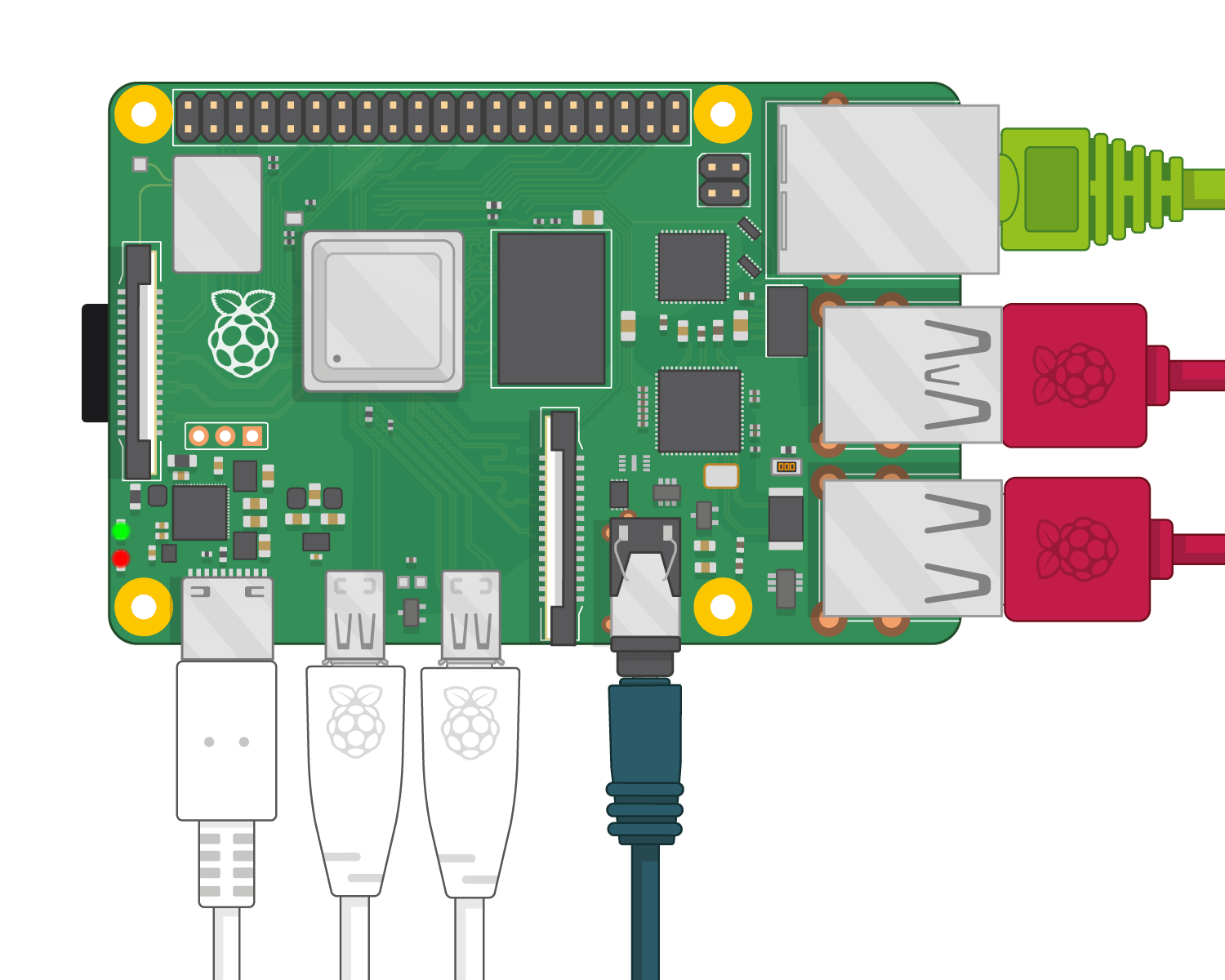Mastering RemoteIoT VPC SSH With Raspberry Pi And AWS: A Comprehensive Guide
RemoteIoT VPC SSH Raspberry Pi AWS integration offers a secure, scalable, and efficient way to manage your IoT devices. Whether you're a developer, IT professional, or hobbyist, this combination enables you to remotely access your devices, deploy applications, and monitor performance seamlessly. With AWS's robust cloud infrastructure and RemoteIoT's secure virtual private cloud (VPC) capabilities, you can create a powerful ecosystem for managing your Raspberry Pi devices from anywhere in the world. RemoteIoT VPC SSH Raspberry Pi AWS is more than just a technical stack; it's a solution that addresses the growing need for secure remote access in IoT deployments. Raspberry Pi, with its versatility and affordability, has become a cornerstone of IoT projects. However, managing these devices remotely can be challenging without the right tools. This is where AWS and RemoteIoT come into play, offering a secure and scalable environment to manage your devices. By leveraging AWS's Virtual Private Cloud (VPC) and RemoteIoT's SSH capabilities, you can ensure secure communication between your Raspberry Pi and cloud infrastructure, minimizing risks and maximizing efficiency. In this article, we’ll dive deep into the intricacies of RemoteIoT VPC SSH Raspberry Pi AWS, exploring its benefits, setup process, troubleshooting tips, and more. Whether you're a beginner or an advanced user, this guide will equip you with the knowledge and tools to harness the full potential of this powerful combination. So, let’s get started!
- What is RemoteIoT VPC SSH Raspberry Pi AWS?
- How Does RemoteIoT VPC SSH Work with Raspberry Pi and AWS?
- Step-by-Step Setup Guide for RemoteIoT VPC SSH
- What Are the Benefits of Using RemoteIoT VPC SSH?
- How to Troubleshoot Common Issues with RemoteIoT VPC SSH?
- Best Practices for Securing Your RemoteIoT VPC SSH Setup
- Can RemoteIoT VPC SSH Scale for Large IoT Deployments?
- Frequently Asked Questions about RemoteIoT VPC SSH
What is RemoteIoT VPC SSH Raspberry Pi AWS?
RemoteIoT VPC SSH Raspberry Pi AWS is a powerful integration that combines the flexibility of Raspberry Pi, the scalability of Amazon Web Services (AWS), and the security of RemoteIoT's Virtual Private Cloud (VPC) SSH. This combination allows users to remotely access and manage their Raspberry Pi devices securely through a cloud-based infrastructure. Whether you're managing a single Raspberry Pi or an entire fleet of IoT devices, this setup provides a robust solution for remote access and management. The core components of this integration include AWS's Virtual Private Cloud (VPC), which provides a secure and isolated environment for your cloud resources, and RemoteIoT's SSH capabilities, which enable encrypted communication between your devices and the cloud. Raspberry Pi, known for its versatility and affordability, serves as the hardware backbone for IoT projects. Together, these technologies create a seamless ecosystem for deploying, monitoring, and managing IoT devices. One of the key features of RemoteIoT VPC SSH Raspberry Pi AWS is its ability to provide secure, encrypted communication between your Raspberry Pi and the cloud. This is achieved through SSH (Secure Shell), a protocol that ensures data integrity and confidentiality. Additionally, AWS's VPC allows you to define custom network configurations, such as IP address ranges, subnets, and route tables, giving you full control over your network environment. This level of customization and security makes RemoteIoT VPC SSH Raspberry Pi AWS an ideal choice for IoT deployments of all sizes.
How Does RemoteIoT VPC SSH Work with Raspberry Pi and AWS?
To understand how RemoteIoT VPC SSH Raspberry Pi AWS works, let's break down the process step by step. First, the Raspberry Pi device is connected to your local network and configured to communicate with AWS. This involves setting up an AWS VPC, which acts as a virtual network that isolates your cloud resources from the public internet. The VPC is then linked to RemoteIoT's SSH service, which facilitates secure communication between your Raspberry Pi and AWS. Once the VPC is set up, you'll need to configure SSH access on your Raspberry Pi. This involves generating SSH keys, which are used to authenticate and encrypt communication between your device and the cloud. These keys are stored securely in AWS and accessed through RemoteIoT's interface. By leveraging SSH, you can remotely access your Raspberry Pi's command line, deploy applications, and monitor performance without exposing your device to potential security threats. The integration of RemoteIoT VPC SSH with Raspberry Pi and AWS also allows for advanced features such as automated backups, real-time monitoring, and remote debugging. For example, you can use AWS CloudWatch to monitor your Raspberry Pi's performance metrics and set up alerts for any anomalies. Similarly, RemoteIoT's SSH capabilities enable you to troubleshoot issues remotely, reducing downtime and improving operational efficiency.
Read also:Unlock The Power Of 5starsstockscom Ai Your Ultimate Stock Market Companion
Key Benefits of RemoteIoT VPC SSH
- **Enhanced Security**: SSH encryption ensures that all communication between your Raspberry Pi and AWS is secure. - **Scalability**: AWS's cloud infrastructure allows you to scale your IoT deployments effortlessly. - **Remote Accessibility**: Access and manage your Raspberry Pi devices from anywhere in the world. - **Customization**: AWS VPC provides full control over your network environment, enabling you to define custom configurations.
Step-by-Step Setup Guide for RemoteIoT VPC SSH
Setting up RemoteIoT VPC SSH Raspberry Pi AWS may seem daunting at first, but with the right guidance, it becomes a straightforward process. Below is a step-by-step guide to help you get started.
Step 1: Set Up Your AWS VPC
1. Log in to your AWS Management Console and navigate to the VPC dashboard. 2. Create a new VPC by specifying an IP address range and configuring subnets. 3. Set up route tables and internet gateways to enable communication between your VPC and the internet.
Step 2: Configure Your Raspberry Pi
1. Install the latest version of Raspberry Pi OS on your device. 2. Connect your Raspberry Pi to your local network and ensure it has internet access. 3. Install and configure SSH on your Raspberry Pi by enabling it through the Raspberry Pi Configuration tool.
Step 3: Integrate RemoteIoT VPC SSH
1. Sign up for a RemoteIoT account and link it to your AWS VPC. 2. Generate SSH keys and store them securely in AWS. 3. Use RemoteIoT's interface to establish a secure SSH connection with your Raspberry Pi.
Troubleshooting Tips
- Ensure that your Raspberry Pi's firewall allows SSH traffic on port 22. - Verify that your AWS security groups are configured to allow SSH access. - Double-check your SSH key configurations to avoid authentication errors.
Read also:Who Is Angelferrnandezz Discover The Inspiring Journey Of A Rising Star
What Are the Benefits of Using RemoteIoT VPC SSH?
RemoteIoT VPC SSH Raspberry Pi AWS offers numerous benefits that make it an attractive solution for IoT deployments. One of the most significant advantages is enhanced security. By leveraging SSH encryption, this setup ensures that all communication between your Raspberry Pi and AWS is secure, protecting your data from unauthorized access and cyber threats. Another key benefit is scalability. AWS's cloud infrastructure allows you to scale your IoT deployments effortlessly, whether you're managing a single Raspberry Pi or an entire fleet of devices. This scalability is further enhanced by RemoteIoT's ability to manage multiple devices simultaneously, providing a centralized platform for remote access and monitoring. Remote accessibility is another major advantage of RemoteIoT VPC SSH. With this setup, you can access and manage your Raspberry Pi devices from anywhere in the world, eliminating the need for physical access. This is particularly useful for IoT projects that require frequent updates or troubleshooting, as it allows you to address issues remotely and reduce downtime.
Additional Benefits
- **Cost-Effectiveness**: AWS's pay-as-you-go pricing model ensures that you only pay for the resources you use. - **Automation**: Integrate with AWS services like Lambda and CloudWatch to automate tasks and improve efficiency. - **Customization**: Tailor your VPC and SSH configurations to meet the specific needs of your IoT project.
How to Troubleshoot Common Issues with RemoteIoT VPC SSH?
Even with the most robust setup, you may encounter issues with RemoteIoT VPC SSH Raspberry Pi AWS. Below are some common problems and their solutions to help you troubleshoot effectively.
Issue 1: Unable to Establish SSH Connection
- **Possible Cause**: Incorrect SSH key configuration. - **Solution**: Verify that your SSH keys are correctly generated and stored in AWS. Ensure that the public key is added to your Raspberry Pi's authorized_keys file.
Issue 2: Slow Performance
- **Possible Cause**: High network latency or insufficient resources. - **Solution**: Optimize your AWS VPC configuration by adjusting instance types and network settings. Use AWS CloudWatch to monitor performance metrics and identify bottlenecks.
Issue 3: Security Group Errors
- **Possible Cause**: Misconfigured AWS security groups. - **Solution**: Review your security group rules to ensure that they allow SSH traffic on port 22. Update the rules as needed to resolve the issue.
Proactive Measures
- Regularly update your Raspberry Pi OS and SSH configurations to patch vulnerabilities. - Use AWS's built-in monitoring tools to detect and address issues before they escalate. - Maintain detailed documentation of your setup for easier troubleshooting.
Best Practices for Securing Your RemoteIoT VPC SSH Setup
Securing your RemoteIoT VPC SSH Raspberry Pi AWS setup is crucial to protect your data and devices from cyber threats. Below are some best practices to enhance the security of your deployment.
Use Strong SSH Keys
Generate strong SSH keys using RSA or ECDSA algorithms and store them securely in AWS. Avoid using default keys or weak passwords, as these can be easily compromised.
Limit Access with Security Groups
Configure AWS security groups to restrict SSH access to specific IP addresses or ranges. This minimizes the risk of unauthorized access and ensures that only trusted users can connect to your Raspberry Pi.
Enable Multi-Factor Authentication (MFA)
Add an extra layer of security by enabling MFA for your AWS account. This requires users to provide a second form of authentication, such as a one-time password, in addition to their SSH credentials.
Additional Security Measures
- Regularly audit your SSH configurations and update them as needed. - Use AWS's encryption services to protect sensitive data in transit and at rest. - Implement network segmentation to isolate critical devices and reduce the attack surface.
Can RemoteIoT VPC SSH Scale for Large IoT Deployments?
RemoteIoT VPC SSH Raspberry Pi AWS is designed to scale seamlessly, making it an ideal solution for large IoT deployments. AWS's cloud infrastructure provides virtually unlimited resources, allowing you to expand your deployment as needed without worrying about hardware limitations. One of the key features that enable scalability is AWS's Elastic Compute Cloud (EC2). EC2 instances can be provisioned and deprovisioned dynamically, ensuring that you always have the resources you need to support your IoT devices. Additionally, RemoteIoT's centralized management platform allows you to monitor and manage multiple Raspberry Pi devices simultaneously, streamlining operations and reducing complexity. Another factor that contributes to scalability is AWS's pay-as-you-go pricing model. This model ensures that you only pay for the resources you use, making it cost-effective to scale your deployment. Whether you're managing a handful of devices or an entire fleet, RemoteIoT VPC SSH Raspberry Pi AWS provides the tools and infrastructure you need to succeed.
Scaling Strategies
- Use AWS Auto Scaling to automatically adjust resources based on demand. - Leverage AWS Lambda for serverless computing and automate routine tasks. - Implement load balancing to distribute traffic evenly across your devices.
Frequently Asked Questions about RemoteIoT VPC SSH
What is the Role of AWS in RemoteIoT VPC SSH?
AWS provides the cloud infrastructure and services needed to support RemoteIoT VPC SSH Raspberry Pi AWS. This includes virtual private cloud (VPC) configurations, EC
Donna Kelce In Hospital: What Happened And Why It Matters?
Discover The World4u: Your Ultimate Guide To Global Exploration
Unveiling The Truth: Meg Ryan Plastic Surgery – A Comprehensive Look

Maximizing Remote Management With RemoteIoT VPC SSH Raspberry Pi AWS

Maximizing Remote Management With RemoteIoT VPC SSH Raspberry Pi AWS